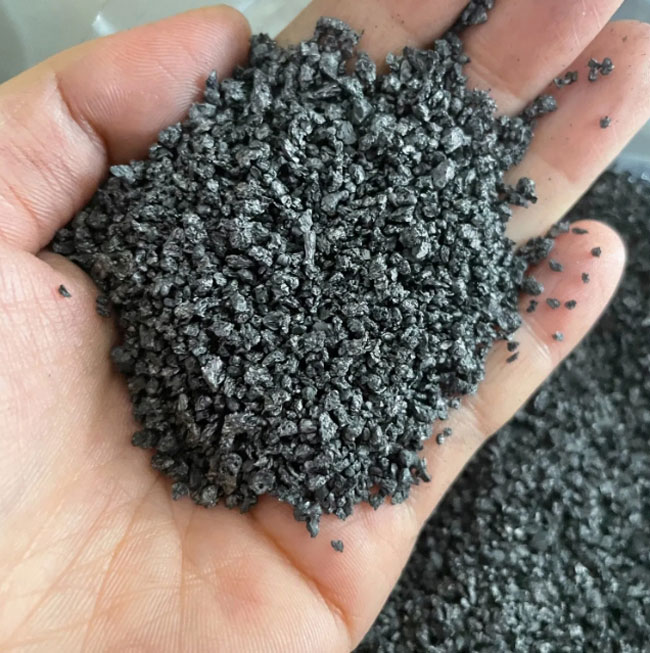
Graphite Petroleum Coke can be used in a wide range of industrial processes due to its high content of carbon, low sulfur, nitrogen, and low ash. Its exceptional heat conductivity allows it to transfer more heat, which increases efficiency in a variety of industrial processes. It is highly valued in the steelmaking sector, where it is an essential component of cast iron and steelmaking alloys. It is also used in a number of other carbon-based products, including graphite electrodes and anodes, as well as refractories.
Petroleum coke (also known as pet coke) is a carbon-based byproduct produced when crude petroleum is converted into fuel through a process called coking. It comes in blocky form from delayed cokers and needle-shaped from fluid bed coalers. It can then be calcined and used to make various carbon products.
As a recarburizer, petroleum coke is used in the steelmaking sector. When added to the steel melt, it increases the amount of carbon in the metal, reducing the need for expensive alloying elements and improving the quality of the finished product. It is also used in foundries and smelting processes as an additive to enhance the quality of castings.
In addition to its ability boost the carbon in cast iron, and steel, petroleum koke has other beneficial properties. It is low in ash, which reduces contamination during industrial processes. This is especially true for smelting, casting and other industrial processes where impurities in cast iron or steel may adversely affect performance. The low sulfur and nitrate content prevents unwanted chemistry and ensures optimal performance for carbon-based product.
High-quality crystalline graphitized coke is coke that's been processed with high temperatures and pressure to achieve a very smooth, crystalline surface. The carbon atoms that make up the microstructure of the petroleum coal are rearranged during the graphitization procedure to closely resemble the structure of graphite. This results in superior properties, such as a higher degree of graphitization, better conductivity, and greater chemical stability than untreated petroleum coke.
GPC that is of high quality, however, is free of impurities such as sulphur or chlorine. This type can be used to seal and lubricate high-temperature systems, as well as electrical contacts.
Graphitized coke is widely utilized as a source of raw material to manufacture high-power, graphite-based electrodes. These electrodes play a key role in the production and processing of stainless steels with high quality and other specialty steels. Its unique structure, high purity, and low sulfur-and-nitrogen content all contribute to a high degree of graphitization. These properties also help reduce the cost for electrode production. GPC high-quality is made with specially selected raw materials, and its quality is strictly controlled to ensure it meets its high demands in the steel and metallic industries.

Write a Message